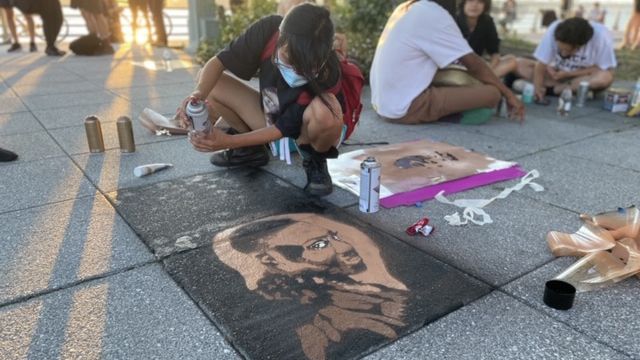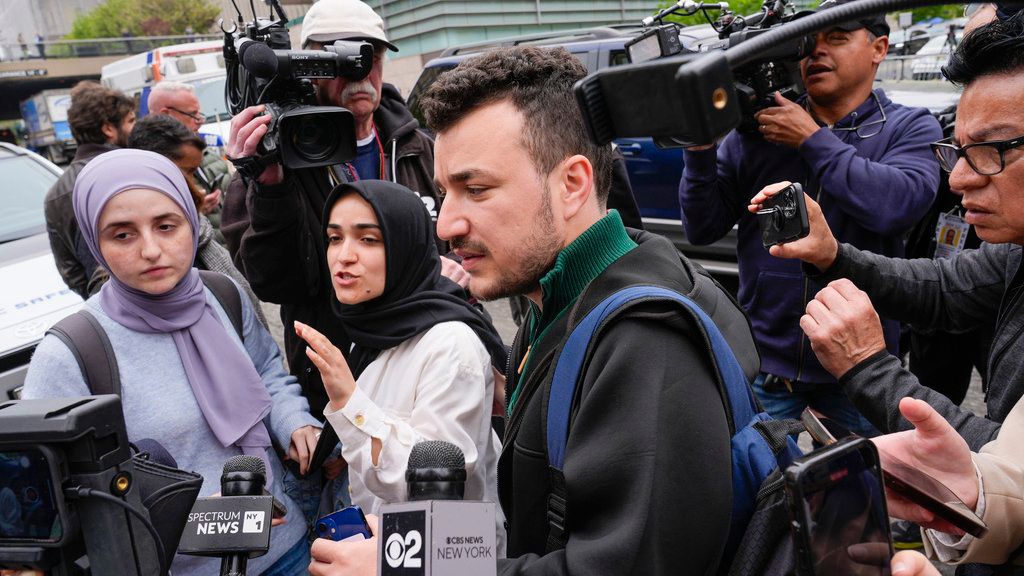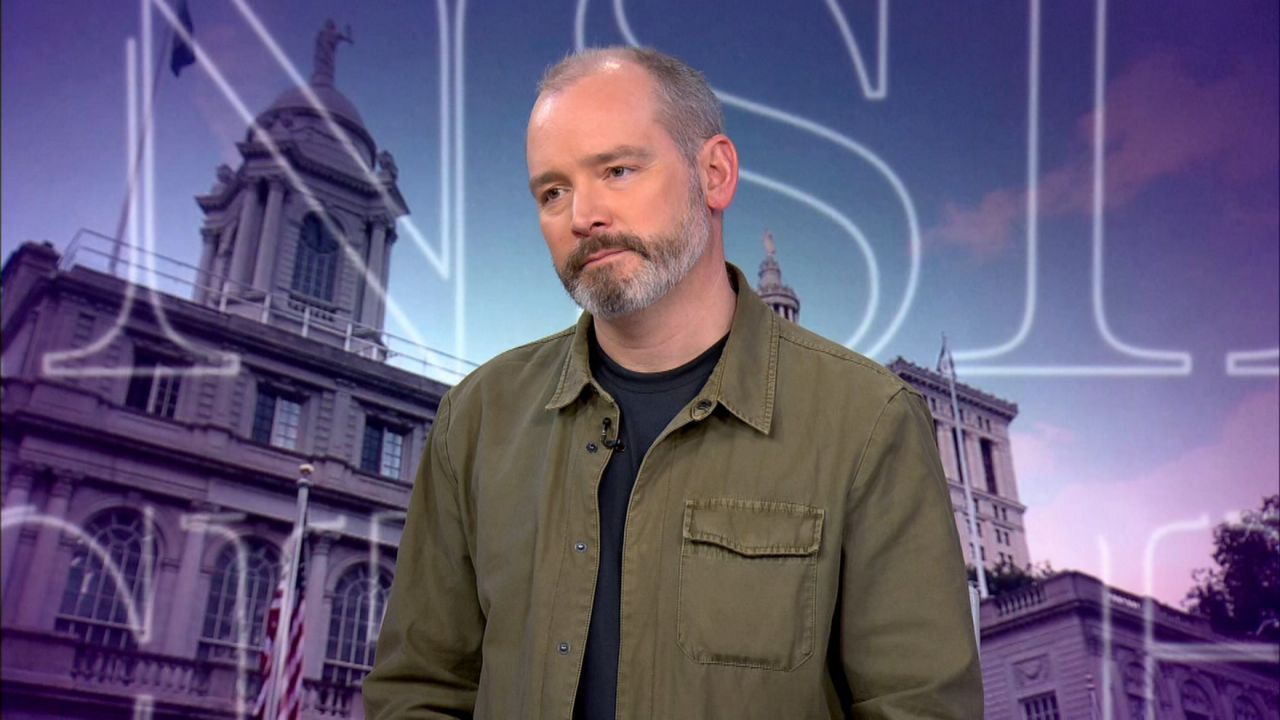NEW YORK CITY — Tiffany Harris rushed into the hospital room where Sayeeda Smart held her newborn son, carrying flowers, pillows and a lavender-scented plug-in. Harris always took “special care” with Smart, she said, because Smart stood by Harris when not even family would.
“I tell people you’re my girlfriend,” Harris, who then publicly identified as a gay man, told Smart. “So I don’t get killed.”
About a decade later, on July 26 about 1:40 a.m., police found Harris, 32, lying in a Bronx hallway with a stab wound in her chest.
Harris died at St. Barnabas Hospital less than an hour later, and joined at least 15 Black trans people who have lost their lives to violence in the U.S. this year.
Researchers from the Human Rights Campaign, the nation's largest LGBT+ advocacy group, call this increase in violent deaths an epidemic, and other advocates describe it as a danger more immediate than the novel coronavirus pandemic.
For Smart, it means she’ll never have a chance to reconcile with the friend who could always “bring light.”
“[Harris] was a great friend to me,” Smart said. "I know the adversity [Harris] faced...It's tragic.”
The challenges arrived in about 10th grade, when Harris came out as gay, Smart said.
In school, Harris was beaten frequently and sometimes badly enough to require hospitalization, Smart said, and Harris's parents stopped providing financial support beyond a place to sleep at night.
When Harris tried to find work, and a much-needed income, the job interviews never panned out, Smart suspects, because her friend's sexual identity.
So Harris began to shoplift and eventually ended up on Rikers Island, Smart said.
“It was like, ‘No, not you,’” Smart said. “You don’t belong there, that is not your life.”
Smart cried as she described how their friendship broke under the strain of the separation, made more difficult by the fact that Smart was a new mom, didn’t understand how to visit Rikers, and didn’t know that little, if any, money had been sent to her commissary account.
Harris felt betrayed and the last time the pair met, said, “I loved you like a sister. I love you, but I can’t," according to Smart.
“I wasn’t there for [Harris] in that time because I don’t know how to be,” Smart said. “We were hella young.”
Harris's story is one that has become too common, and advocates say, too commonly left untold.
“Our community is much more visible than it has been,” said Tori Cooper of the Human Rights Campaign.
“But we’ve always known this has existed, we’ve always known this is dangerous, we’ve always known girls will be killed.”
The Human Rights Campaign reports this year at least 25 trans people, 14 of whom were Black, have died from violence, making it likely violent deaths will exceed the record of 29 set in 2017.
“We have a surge of fatal violence,” HRC research manager Charleigh Flohr added. “There are more deaths and they’re happening in shorter periods of times.”
The numbers could be higher as many law enforcement agencies and municipal, state and federal governments still lag behind when it comes to collecting data on the deaths of transgender people, Florh noted.
While all states are required to report hate crimes against trans people to the Federal Bureau of Investigation, some have gone a year without reporting one, which Flohr says is a statistical impossibility.
Death rates are also difficult to measure because police and medical examiners mark gender based on birth certificates.
When the NYPD alerted press of Harris’ death, they identified her as “Kemar Soloman/32 year old male.”
It’s possible this year’s noted increase in violence is the product of mounting awareness of trans identity, and better reporting of transphobic hate crime, but advocates fear it is also the product of the pandemic.
The economic fallout has pushed an already vulnerable community into even more high risk situations just as emotional stressors are at their highest, Cooper said.
“It’s creating this orgasmic sense of violence,” Cooper said. “We’re seeing people pick on folks who have less power and there are fewer people with less power than Black trans people.”
Black trans sex worker activist TC Candii would add a caveat.
"Prostitution has been used to criminalize black and brown women," Candii said. “We didn’t have no one except ourselves."
Candii, an advocate for the decriminalization of prostitution, worries Black trans sex workers face a heightened risk as few resources have been made available to them during the pandemic.
Housing for trans sex workers is especially difficult to procure, because it is commonly allocated by gender, and several women Candii has helped were excluded from shelters because they were tall and had Adam’s apples, she said.
Sex workers were also left out of economic stimulus packages — the Paycheck Protection Program denied funding to anyone involved in a business of a "prurient sexual nature" — and while New York City has budgeted about $4.1 million to support “persons involved in the sex trade,” Candii notes trans people can get lost in groups not targeted specifically toward them.
“What we need is income,” Candii said. “What we need is finances.”
While Harris' relationship with sex work remains unclear — police and neighbors note the building where she was killed, and did not live, is commonly used for prostitution — Candii said the violence she faced is exactly that feared in the Black trans sex worker community.
It's a fear greater than that of contracting COVID-19, she said.
"The fear becomes what you fear the most," Candii said. "We fear walking down the street, but we still have to walk down that street."
This sad reality hit home for about 100 New Yorkers who gathered on Pier 46 Friday night for a vigil in honor of Harris and the other trans people who have died this year.
The group sat on the green artificial turf, watched the sun set over the Hudson and listened to music in small clusters of socially distanced groups.
Among them was Qween Jean, a Black trans woman who told the crowd her demand was a simple one, but one denied Harris: the right to live to see her 35th birthday.
“We have fought to live and we will continue to fight,” Jean said. She took a moment to address Harris directly.
“You are beautiful, you will be missed,” Jean said. “And I will do my best to bring the beauty back.”








